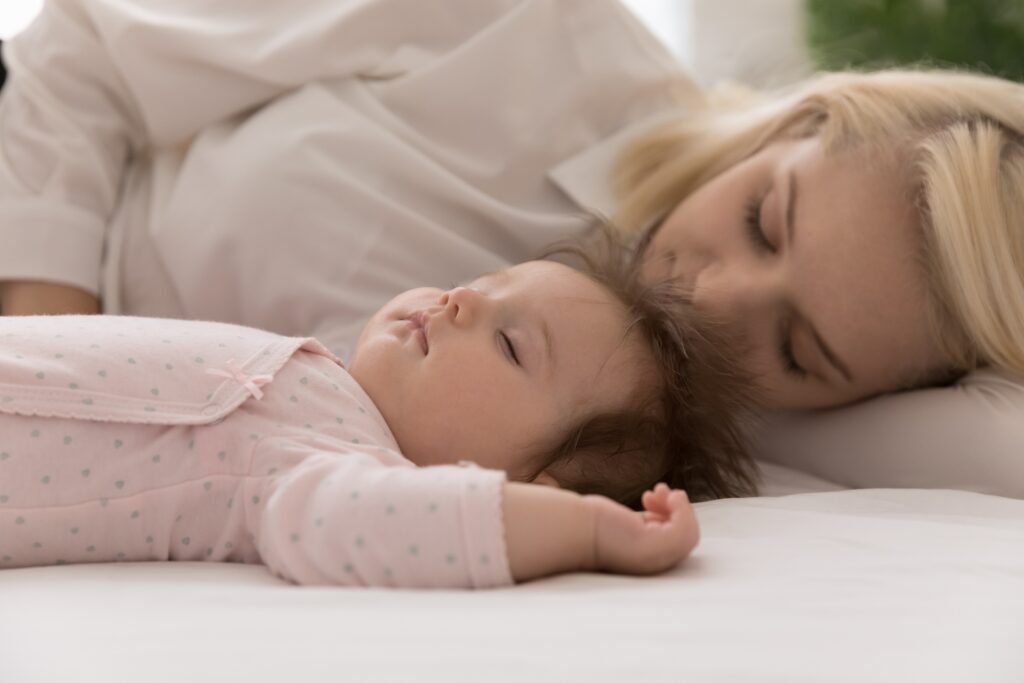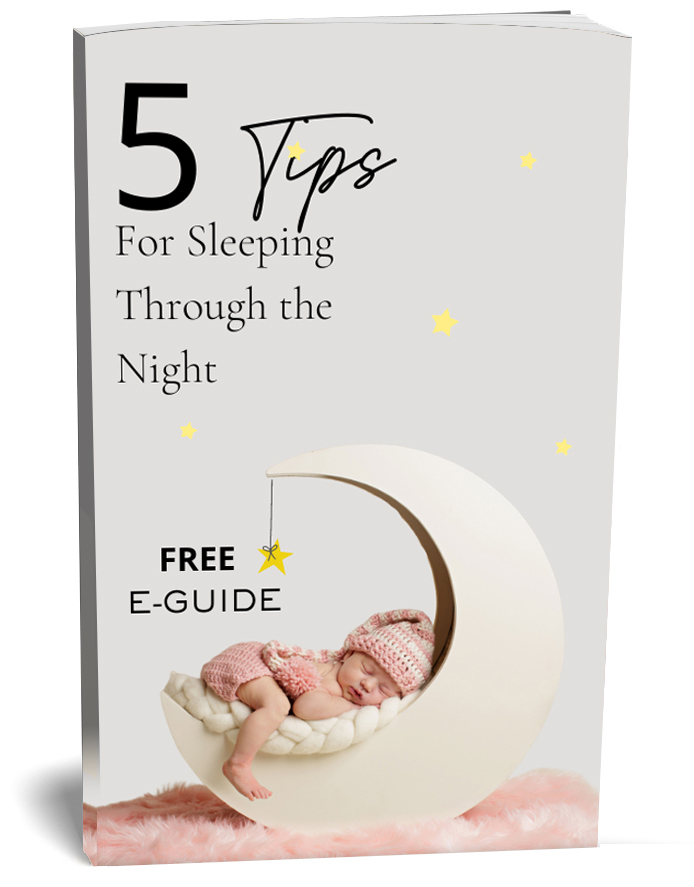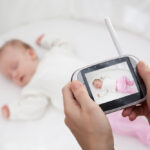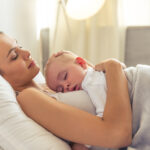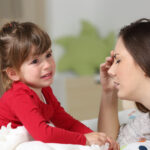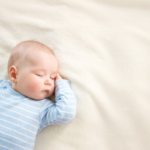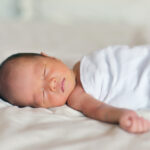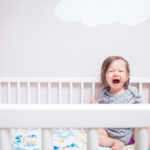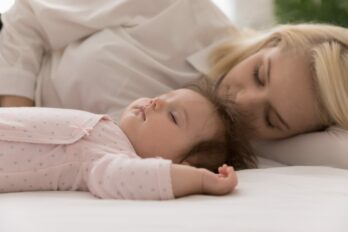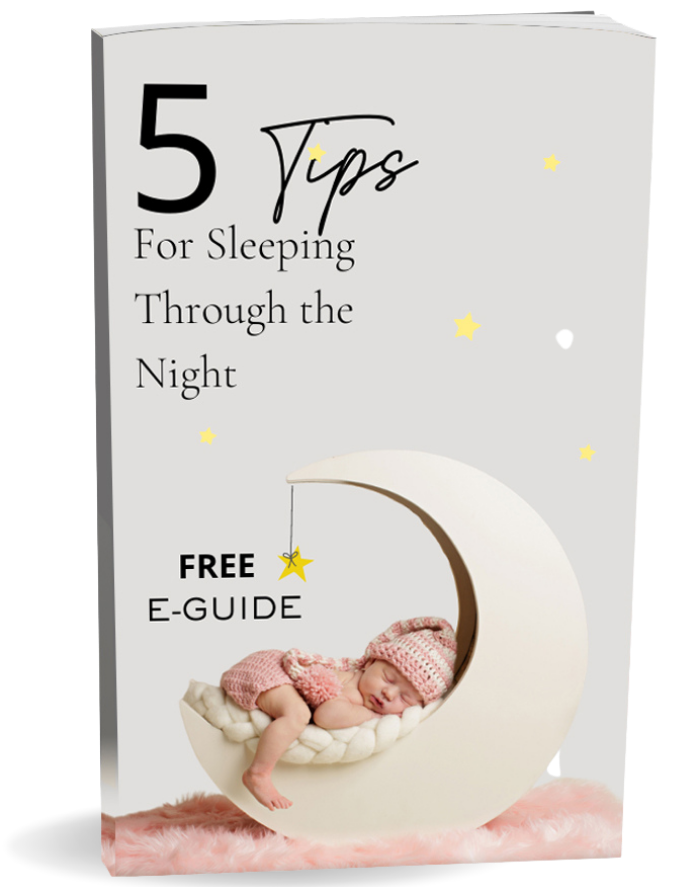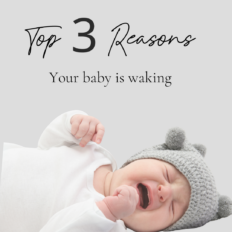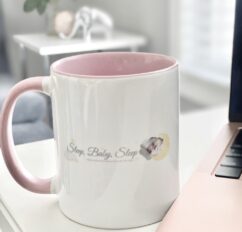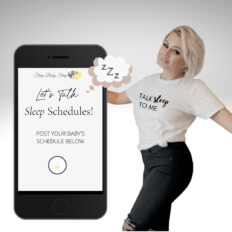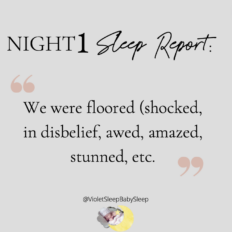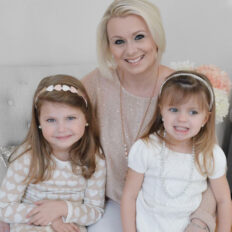Safe Sleep 7: the Dangers
Why La Leche League May Have Missed the Mark
I’m going to say this right up front: I do like La Leche League International (LLLI). So when I bring up Safe Sleep 7: the dangers, I’m not asking you to disregard this absolutely amazing, groundbreaking association. Far from it! (There are just a few caveats…read on to find out more.)
LLLI is non-profit, non-governmental, and since 1956 they’ve been helping moms achieve their goal of a healthy, happy baby. Five stars!
Their larger focus was initially on breastfeeding, which had gone off-trend in the generations prior. For a while, believe it or not, breastfeeding was considered “dirty,” unreliable, and inferior to bottle-feeding.
In addition, it was associated with the poor, because poorer families could not afford either a designated wet nurse or clean bottle formula.
Psst!
Want to keep Baby Safely at Arm’s Reach?
Reach for the Arm’s Reach Co-Sleeper.
But later LLLI took off to include health recommendations for infants. And I love that!
The problem? While LLLI gives safety recommendations wherever possible, their Safe Sleep 7 misses the mark in a couple of areas –– particularly with cosleep habits.
I don’t say any of this lightly. As an expert in the field of infant sleep, I constantly consult updated recommendations per the American Association of Pediatrics (AAP), as well as peer-reviewed research published on sites such as the National Institutes of Health (NIH).
What I have found over the years is that there are a few GREAT tips from LLLI, a few that may need reconsidering, and then one or two that simply miss the mark when it comes to AAP-backed research.
That’s why you need to read Safe Sleep 7: the Dangers below. Remember, safety always comes first! Here is the LLLI’s list, including my expert-backed take on each.
Baby Still Awake?
Help Her Teach Herself to Fall Back Asleep!
CLICK HERE
What is Infant Co-Sleeping?
Co-Sleeping can be defined in two ways:
- Sleeping in close proximity to a caregiver. (In other words, the infant/child is in the room, and probably close to the parents’ bed.) OR…
- Sleeping in the bed with the caretaker, otherwise known as bedsharing.
That’s important, because what I’m about to tell you is why some of the Safe Sleep 7 dangers are about sleeping in the bed with the baby, not keeping Baby close. More on that in a minute.
What Safe to Sleep/Back to Sleep Has to Say
The Safe to Sleep campaign (formerly called the Back to Sleep campaign) is a great resource, and one that had a big impact on how I raised my children and how I run my baby-centered business.
Safe to Sleep has helped reduce SIDS deaths in infants under by 50%. And among their recommendations is not sleeping in the same bed as your little one.
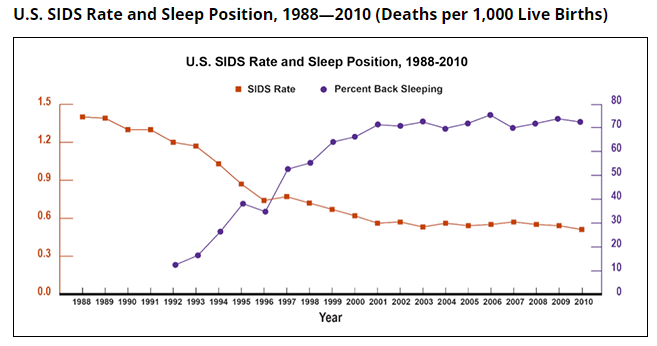
But that doesn’t mean there’s no way to keep your baby nearby at bedtime. Which leads us to…
Can You SAFELY Co-Sleep?
Yes – you can have the security of being close to your little one while keeping him safe.
What you need in this case is a bedside bassinet or cosleeper. My clients LOVE these. Just make sure you’re getting the safest possible bedside bassinet. And buy it new – safety standards can change over time.
I just have to take a moment here to give my favorite co-sleeper/bedside bassinet a mention. It’s the Arm’s Reach Co-Sleeper bassinet. I love it because it has all of the points I’m about to list below. If you don’t choose the Arm’s Reach, that’s fine – just make sure the cosleeper you buy has all of the features below:
- Mesh sides for breathability/breathing safety
- Easy-access, secure panel at the side or one end so you can easily reach for your baby
- Pediatric-quality, firm mattress
- Has the correct sizing for your baby to grow
(What I love about the Arm’s Reach is that it has all the safety features, plus more! For instance, there is loads of storage area so you aren’t fishing around in the dark. Plus it’s adjustable and comes with its own sheet – make sure any sheets you buy fit the cot exactly!)
The Safe Sleep 7: What Are the Dangers?
Now let’s get down to the Safe Sleep 7, the dangers, and whether each recommendation is a Solid Hit or Misses the Mark on your baby’s sleep safety.
1. No Smoking Inside the Home or Outside
Solid Hit or Misses the Mark?
✔ Our Decision: SOLID HIT
Yes, I’ll be the buzzkill here. Smoking during pregnancy has been linked to a number of health issues, including a small birth weight baby, premature birth and prenatal bleeding.
After Baby is born, she will be exposed to the residue of tobacco smoke on your clothing and skin whenever you hold her. You will also bring residue inside if you smoke outside. And if you breastfeed, your baby is getting nicotine and other dangerous chemicals every time she nurses.
2. No Alcohol/No Drowsy Meds
Solid Hit or Misses the Mark?
✔ Our Decision: MISSES THE MARK
I agree that drinking is a no-no when caring for a new baby –– whether you breastfeed or not –– and that certain medications, even over-the-counter ones, can cause drowsiness. That’s not safe for either of you.
However, the suggestion at LLLI seems to be that this means co-sleeping in the same bed will be more dangerous for your baby. That’s true, but my recommendation is to try to not co-sleep body-to-body style. I’ll discuss that further below.
3. Nursing Mother Day & Night
Solid Hit or Misses the Mark?
✔ Our Decision: MISSES THE MARK
The AAP recommends breast milk as an infant’s sole source of nutrition for the first six months. This means you will be getting up at night to nurse, obviously.
However, LLLI does not seem to differentiate whether that means keeping the baby with you in the bed, or whether you should get up to get your baby. So I have to give this a decision of Mixed Message. (Read below for more information on my take.)
4. Healthy Baby Full-Term
Solid Hit or Misses the Mark?
✔ Our Decision: SOLID HIT
There is simply no argument for not doing your best to try to ensure your baby will be born healthy. I know this isn’t always possible. Sadly, things happen that are entirely out of your control. If your baby is born with medical issues, the least likely possibility, per statistics, is that you “did something” to “cause” the genetic issue.
However, refraining from smoking, refraining from being around those who smoke, only taking medications directly prescribed by your OB (this includes OTC medicines), getting lots of rest and eating a healthy diet are all ways you can work toward a healthy pregnancy and full-term baby. Again: there may be nothing you can do; things happen. But healthy habits are always your best bet, no matter what.
Of course, a healthily-born baby does not mean cosleeping in the bed is always safer than with a baby who has a medical issue. More on that below.
5. Baby on Back
Solid Hit or Misses the Mark?
✔ Our Decision: MISSES THE MARK
The Safe to Sleep (formerly “Back to Sleep”) campaign recommends all infants be placed on their back to sleep, as a lower risk of Sudden Infant Death Syndrome (SIDS) is associated with a back-sleeping position.
I have three important caveats here:
- A baby with a specific health condition, a baby who needs to wear special medical equipment, or certain other issues may mean your pediatrician has different recommendations for sleep position and length of time. ALWAYS ASK your pediatrician before changing your baby’s sleep position habits.
- The NIH says that a baby who can roll over easily by herself is safe to sleep on her tummy, assuming she is otherwise healthy and rolled there herself. Preventing her from rolling over by keeping her on her back next to you, is dangerous advice. A baby should never be forced to sleep in any position.
- This Safe Sleep 7 recommendation does not appear to include very much in the way of information on why Baby sleeping on her back next to you on a bed can be dangerous. (More on that below.)
She’s Just a Reach Away.
The Arm’s Reach Co-Sleeper is Here
6. No Sweat/No Swaddle
Solid Hit or Misses the Mark?
✔ Our Decision: MISSES THE MARK
The idea behind not swaddling starts out pretty solid: a baby who is overheated at night runs some pretty big risks. So a tight swaddle with a thick receiving blanket, in an overheated room, can be bad for Baby.
However, “when done correctly, swaddling can be an effective technique to help calm infants and promote sleep,” according to the AAP. (More on this below.
7. Safe Surface/Co-Sleeping Recommendations
Solid Hit or Misses the Mark?
✔ Our Decision: DANGER ZONE!
That may sound dramatic, but here is where LLLI really falls short of the mark. That’s because many of the safe sleep recommendations are about how to position Baby next to you on the bed or other surface.
In general the recommendations closely follow the AAP and Safe to Sleep guidelines, such as keeping the area clear of toys, pillows and heavy blankets; things that can tangle, such as cords; laying Baby on a firm rather than sagging mattress; and not allowing gaps where Baby can get stuck.
But putting Baby next to you on the bed, even with these precautions, could spell DANGER. Here’s why.
What the AAP Has to Say
The AAP gives these guidelines. (This list is NOT exhaustive. Go on the site AND ask your pediatrician before assuming you have all safety bases covered.)
- Place infants on their backs for sleep in their own sleep space with no other people*.
- Use a crib, bassinet, or portable play yard* with a firm, flat mattress and a fitted sheet. Avoid sleep on a couch or armchair or in a seating device, like a swing or car safety seat (except while riding in the car).
- Keep loose blankets, pillows, stuffed toys, bumpers, and other soft items out of the sleep space.
- Breastfeed if possible, and avoid smoking.
*Bolding here and below is mine.
The AAP has the following to say about safe swaddling:
- There is no evidence to recommend swaddling as a strategy to reduce the risk of SIDS. If infants are swaddled, always place them on the back. Weighted swaddles, weighted clothing or weighted objects on or near the baby are not safe and not recommended. When an infant exhibits signs of attempting to roll (which usually occurs at 3 to 4 months but may occur earlier), swaddling is no longer appropriate, as it could increase the risk of suffocation if the swaddled infant rolls to the prone position.
Please be very careful of the above guidelines! Particularly the bolded…but as the experts, AAP should be the go-to source for infant sleep safety, in my and other experts’ opinion. Swaddling is a cuddly and time-tested way to soothe new babies. I have more information about swaddling on my blog…check it out!
The Bottom Line
There are ways to co-sleep safely. According to the experts, your best bet is to cosleep with Baby near you, but not in the bed with you. In other words, room share don’t bedshare.
Remember to always ask your child’s pediatrician to confirm advice you have read or heard. (Yes, even mine! I encourage my moms to ask, ask, ask!)
Now that you’ve heard Safe Sleep 7: the Dangers, what do you think? Let me know in the comments below.

